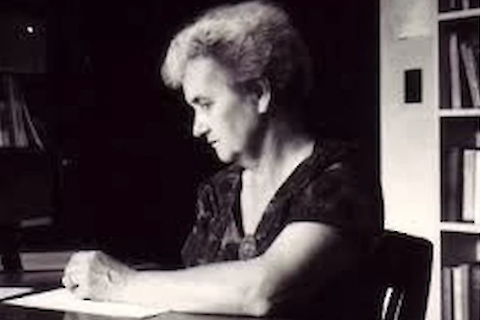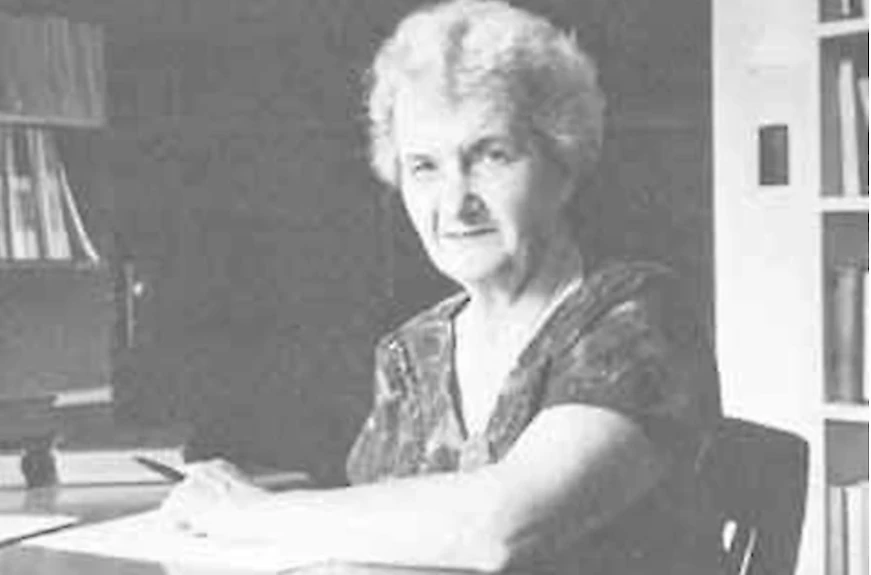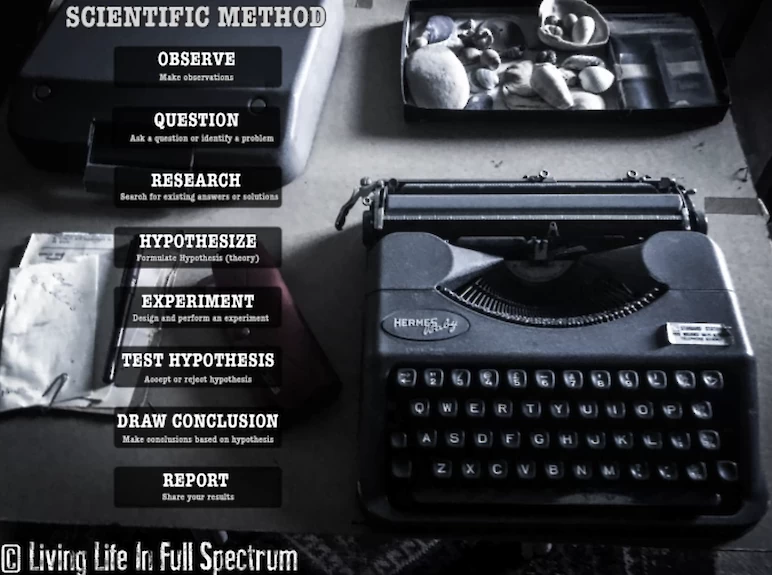

In the words of: Louisa E Rhine
In the words of is a series where I delve into some of the writings of notable paranormal and psychical researchers to dissect their view, create discussion, inspire and maybe even challenge the way we think. You may not agree with everything they say, however many of their writings have formed the very way paranormal investigators approach their research or even the language they use.
In previous editions, we have heard from
Today I wanted to highlight one of the inspirational women of parapsychology - Louisa E Rhine. While many attribute the name Rhine to J.B Rhine the famous psychical researcher who invented Zener Cards for testing of ESP, there was another Rhine making waves in the world of parapsychology. Louisa E Rhine was a pivotal member of J.B Rhine's research while also being known for her papers and books on spontaneous cases. Born in 1891, Louisa Weckesser who was an American doctor of Botany, married a fellow graduate student in 1920 - Mr Joseph Banks Rhine. In 1927, they moved to Durham in North Carolina raising a family of 4 and going on to create a parapsychological dynasty. Louisa herself would become 'The First Lady of Parapsychology'.

She went on to write 6 books and 18 scholarly journal pieces on the different cases she researched. To read more about Louisa and her work within the paranormal field, see my article: Ladies of Paranormal Past: Louisa E Rhine
Here are some quotes from her book ESP in Life and Lab: Tracing Hidden Channels
Louisa begins the book by stating
"WHAT is man? Is he creature of "sense and mechanics" only, or something more?"
The book itself was published in 1967, however, it still remains relevant today. There is still so much that is unknown when it comes to the capability of humans. Louisa goes on to say
The answer is not to be found in the newest textbooks or the greatest universities. In fact, the question itself is in danger of being forgotten, of no longer being asked. In this proud and busy young space age, when the world's attention is so closely focused on the more obvious areas of exploration, the question of the total or unique nature of man is in danger of being passed up and the answer most in line with the mechanistic spirit of the age assumed to be correct without a test.
In some ways, I think Louisa would be thrilled with the attention that the paranormal field gets compared to back then. I wonder however how she would feel about the direction it has taken. While parapsychology is something explored by many people, the question above is still very much in danger of being forgotten. With reality television, ghost hunting and the demon narrative, the focus is more on the phenomena itself and not the people experiencing or potentially causing it. Why do people have these experiences? Is it random or is there a reason?
The unconscious mind
In Chapter 7, Topics of ESP (Life), Louisa writes
THE uunconscious is the storehouse of man's past experiences, but it is not just a dusty old attic full of memories. It is a workshop where many of life's significant mental processes go on. With ESP apparently it even has a "door," a rather secret one, which somehow, in effect, opens directly on the objective world.
By this door, information can be secured about events outside. But even though the range of those events can be as wide as the horizon, still, in actuality, only a few of the worl'd myriad activities are thus known. In the light of examples already given, no answers to the great puzzles of the universe appear, but mainly news of the personal affairs of individuals. This suggests that the "door" in the unconscious is guarded, or perhaps one should say that it is the selectin point. It means at any rate, that here at this beginning stage of ESP is an initial point of judgment of selectivity where a decision is made about the topic which will be admitted. Somehow, here, the psyche sometimes decides, "This one I will take. This item is of concern to me".
I find the unconscious mind one of those really important and intriguing topics when it comes to paranormal research. On one hand, our unconscious mind influences how we interpret the paranormal. Our past experiences, education and daily life all contribute to this. Just believing the paranormal exists means our mind can make us connect dots where there are none. Then at the other end, like Louisa was saying, you have the concept of the 'The door'. Are the genetic memories of our ancestors embedded deep within the depths of our unconscious mind? While we know the information in there influences us, we also have to ask, just what is in there and is it linked to things like ESP and psychic ability?
A paranormal occurrence does not automatically prove or explain itself
In Chapter 12, The PSI process in the Laboratory, Louisa writes
Spontaneous occurences, whether involving ESP or any other of nature's processes, do not automatically prove and explain themselves. They must be studied and analyzed. They must be subjected to controls, tested, checked, and rechecked according to the requirements of the scientific method. And in the last analysis, the requirements of scientific method are simple those of making sure, not guessing, at interpretations.
I feel like the above is good advice not just for someone conducting PSI research or parapsychology trials, but can apply to anyone researching the paranormal. Just because something happens, it doesn't automatically make it paranormal. Before making claims, we need to be sure. The word spontaneous is most important here because it is true within ESP and also paranormal experiences. We don't know when or why it is going to happen, we just know that it does. We also need to establish that having a piece of electronic equipment doesn't make your approach scientific. You can be scientific without one piece of 'paranormal equipment' in your kit. It is all about the method, not the equipment. Louisa's most powerful tool was a notebook to scribble down all of her findings and notes from observing experiments to collecting stories and experiences from people.

For more articles I have written related to the work of Louisa E Rhine check out:
Children who claim to remember their past lives
*Above is my own thoughts and interpretations of Louisa E Rhine's words. Do you resonate or do you interpret them differently? Tell me your thoughts in the comments below.
References
ESP in Life and Lab Tracing Hidden Channels by Louisa E Rhine (1967)
If you enjoy LLIFS, consider buying me a book (otherwise known as buy me a coffee but I don't drink coffee and I LOVE books). Your donation helps to fund the LLIFS website so everyone can continue to access great paranormal content and resources for FREE!

Top pages with similar subjects
Don't forget to follow the Facebook page for regular updates
Join the mailing list to receive weekly updates of NEW articles. Never miss an article again!
Buy the latest and past issues Haunted Magazine
Check out the books written by LLIFS